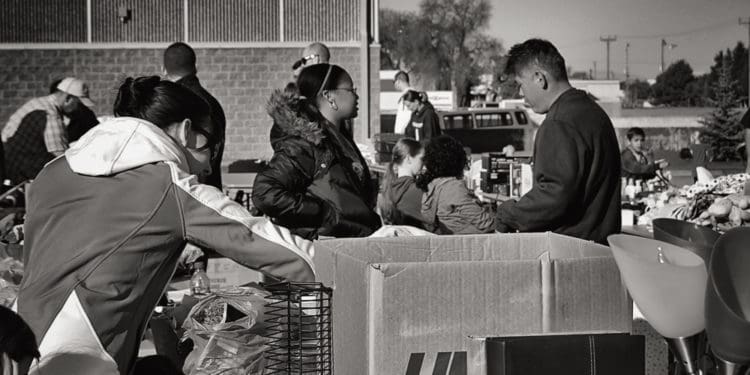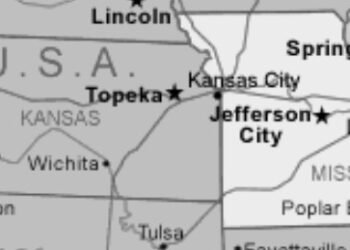If you need a ray of sunlight in these dark times, consider the magnitude of the human capacity for charity and voluntary action as we help one another through a time of crisis. Individuals, private organizations and businesses across the United States have stepped forward to offer assistance to those in need amid the novel coronavirus emergency. Voluntary cooperation and compassion are proving to be some of the most potent weapons we have in tackling the pandemic.
Technology and social media have allowed for better coordination of charitable efforts and volunteer work. Across America, online groups have popped up to help people exchange needed supplies, information related to the virus and to arrange volunteer work. For example, in my own local area, the “DC‐Area COVID-19 Grocery Getters” Facebook group helps to coordinate volunteers to deliver groceries for elderly or immuno‐compromised individuals.
Similar groups offer free online tutoring to help students learn remotely or arrange for volunteers to deliver meals, which are donated by restaurants, to hospital workers. One innovative online group matches owners of RV trailers that are sitting idle with healthcare workers who need a place to self‐isolate after long hospital shifts so they don’t infect vulnerable family members. And hundreds of thousands of volunteers are donating their computers’ spare power toward virus research through projects like “Folding at Home.”
Many individuals have donated face masks and other supplies to medical workers while volunteer groups have also emerged to coordinate the making of new masks for donation by using 3D printers or by sewing. Such generosity is not limited to individuals. Organizations ranging from the Washington National Cathedral operated by the Episcopal Church to the financial services company Goldman Sachs have donated troves of N95 masks from their own supply closets to help address the shortage of such masks among medical professionals.
Before many locales issued stay‐at‐home orders, various organizations and businesses were already encouraging social distancing. Many places of worship had already ceased in‐person services out of an abundance of caution and moved their services online. Similarly, many employers were already encouraging their employees to work remotely.
Many businesses are stepping up to help not just their employees, but the most vulnerable among us. They do so on a voluntary basis. The U.S. Federal Emergency Management Agency administrator Pete Gaynor noted that it has not been necessary to fully enforce the Defense Production Act because companies have been voluntarily manufacturing masks, ventilators and other critical supplies for donation.
National Public Radio reported that even before the Trump administration encouraged non‐medical companies to produce medical supplies, the latter already had partnerships with medical companies lined up. Businesses ranging from the automotive maker Ford to the clothing company Brooks Brothers are now making medical supplies. Tesla CEO Elon Musk has vowed to manufacture ventilators, as will Richard Branson’s Virgin Orbit, a company that normally makes rockets.
Many non‐manufacturing businesses are also doing their part amid the pandemic, for example by helping students. Zoom has given schools free versions of its teleconferencing software to aid remote learning, while AT&T, Verizon and Comcast are offering free Wi‐Fi to students who lack internet access so that their studies won’t be interrupted. Online education platform Coursera made its courses free to universities, and Scholastic has launched a “Learn at Home” website with many free tools for new homeschoolers.
Most major grocery stores have instituted seniors‐only shopping hours for the elderly, who are among the groups most vulnerable to COVID-19, to reduce the seniors’ exposure risk. Numerous restaurants have created discounts or waived delivery fees to serve those in quarantine at home.
Philanthropists have also been generous in providing funding for efforts to combat the novel coronavirus. Billionaires such as Bill Gates, Jack Ma, Jeff Bezos, Mark Zuckerberg, Ralph Lauren, Giorgio Armani and Oprah Winfrey are pouring their fortunes into research on COVID-19 treatment and prevention, heightened medical center capacity, and long‐term pandemic preparedness. The George Mason University economist Tyler Cowen’s $1 million prize, which rewards various breakthrough developments in combatting COVID-19, provides another example of increased philanthropic efforts in the face of the pandemic.
In some cases, the human inclination toward charity is unfortunately hampered by over‐regulation. While the government has, fortunately, recently loosened outdated restrictions on who can donate blood, some other charity‐hampering laws still remain in place.
Food banks, for example, are pleading with the government to relax certain regulations that prevent them from operating with safe social distancing. Under the current rules, volunteers giving out emergency food supplies are legally required to collect information from the supplies’ recipients through extensive interviews that are difficult to conduct from the recommended distance of six feet away. Despite such unfortunate red tape, people continue to find ways to help one another.
The COVID-19 outbreak has many people feeling hopeless, and so it is more important than ever to draw attention to the ways in which individuals and organizations are tackling the crisis through volunteering, donations and other forms of kindness and solidarity.









What Missouri can learn from Kansas’s budget crisis